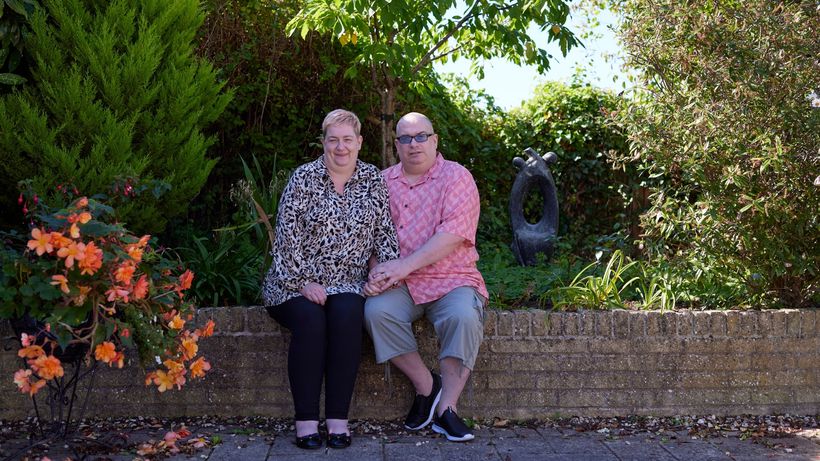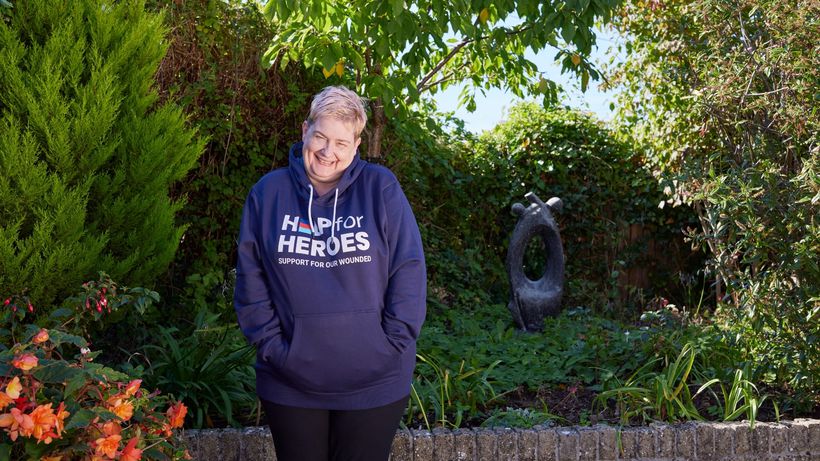Updated on
Helen was always proud of her role as an Army wife – accompanying Military Policeman Paul on postings in Germany, London, and Northern Ireland. She supported him through the good times and the bad, in and out of service; but wouldn’t realise the affect military life had on her mental health until it was almost too late.
“Paul did an extra-long stint in Northern Ireland. Most tours of duty are only six months, we were there for three years.
“It was stressful, trying to live a normal life bringing up our young daughter. Paul enjoyed his work, but there were frightening times. We’d go to our car and have to look underneath in case there was a bomb.
“As a wife you’re always living on the edge because you can never settle, you’re alone, and with kids I worried if something happened to Paul, how would I look at their faces and tell them they’re never going to see their Dad again? So I said it’s me or the Army.
“Paul went back to being a civilian, and we moved to Cardiff. He got a job as a bus driver, but I could tell something wasn’t right. The mood swings and temper started first. His drinking increased to two bottles of whisky a day, and other things had shifted. He wasn’t sleeping. He couldn’t stay in a job for long, he couldn’t settle.
“I decided to look into PTSD and traumatic stress and Paul fitted everything - not sleeping, the drinking, the mood swings.
“He started having flashbacks of being under fire from petrol bombs in Northern Ireland. We went to fill the car up one day and he couldn’t cope. He was sat in the passenger seat shaking. Just the smell of fuel was enough.
“Everything came to a head in 2013. He physically hurt me and was arrested. He broke down in the cell. I’d had enough and needed to think of myself and the kids. But I could never give up on him.
“That was a turning point for us. I’ve seen the changes in Paul. Before Northern Ireland we were constantly holding hands and going out for meals. We don’t do that anymore. Sometimes I feel alone.
Sometimes he doesn’t want to get up. I get his clothes ready. But it’s like I’m not in his bubble. I don’t want a medal for it. I do it because I love him.
“My dad passing away, along with the stress of looking after Paul and our children really took a toll on my mental health too. I started having dark thoughts. I’d sit in the car and think, what am I doing it for?
“A close friend helped me at my lowest point. She told me she’d tried to commit suicide and related to everything I said. It was a relief to know that I wasn’t alone. Another friend recommended I get in touch with Help for Heroes, and it’s the best thing I’ve ever done. If it wasn’t for my friend and the support from Help for Heroes Hidden Wounds team, I don’t think I would be here today. They’ve supported us and never turned their back on us.
“Being able to talk to people who understand has been a lifeline for me and Paul. I urge anyone having dark or suicidal thoughts to reach out to someone. The key words for me are ‘are you okay?’ That’s someone saying: ‘I am here for you'."
If you are a veteran or family member struggling, please don’t hesitate to reach out to us.
For support in an emergency, please call 999 or the Samaritans on 116 123.








